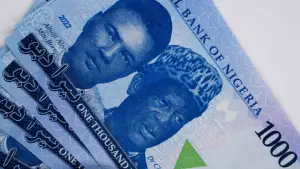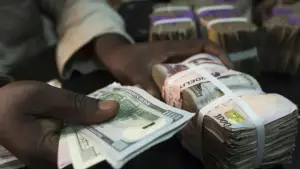Nigeria's foreign exchange reserves are projected to rise to $41 billion by the end of December 2025, according to a mid-year outlook report by CardinalStone, a Lagos-based research and investment firm.
The anticipated $41 billion figure represents a slight increase from the $40.88 billion recorded in 2024, with the naira expected to maintain its recent gains against major currencies.
Factors Driving Reserve Growth
The projected increase in Nigeria's external reserves is primarily attributed to the Federal Government's plans to raise approximately $3.2 billion in external borrowing during the second half of the year to meet fiscal priorities. Additional support is expected from potential inflows from portfolio investors.
"These proposed external borrowings, alongside other anticipated inflows, will likely boost the FX reserves to $41.00 billion by year-end, compared to $37.27 billion as of H1'25," CardinalStone stated in their report.
As of Tuesday, the naira was trading at ₦1,529.22 against the dollar in the official foreign exchange market, while the parallel market rate stood at ₦1,550, indicating relative stability in the currency markets.
Implications for Nigeria's Economy
Stronger external reserves typically enhance a country's ability to defend its currency and meet international payment obligations. For Nigeria, this projected increase could provide additional buffers against external shocks and potentially support further stability in the foreign exchange market.
The positive outlook for Nigeria's external reserves comes amid ongoing economic reforms and efforts to stabilize the naira, which has shown resilience in recent months despite global economic uncertainties.
Economic analysts suggest that sustained growth in external reserves could boost investor confidence and potentially lead to increased foreign direct investment in the Nigerian economy.
Stay updated with the latest economic news by following BenriNews on our social media platforms: Facebook, Twitter, LinkedIn, WhatsApp, and Telegram.













